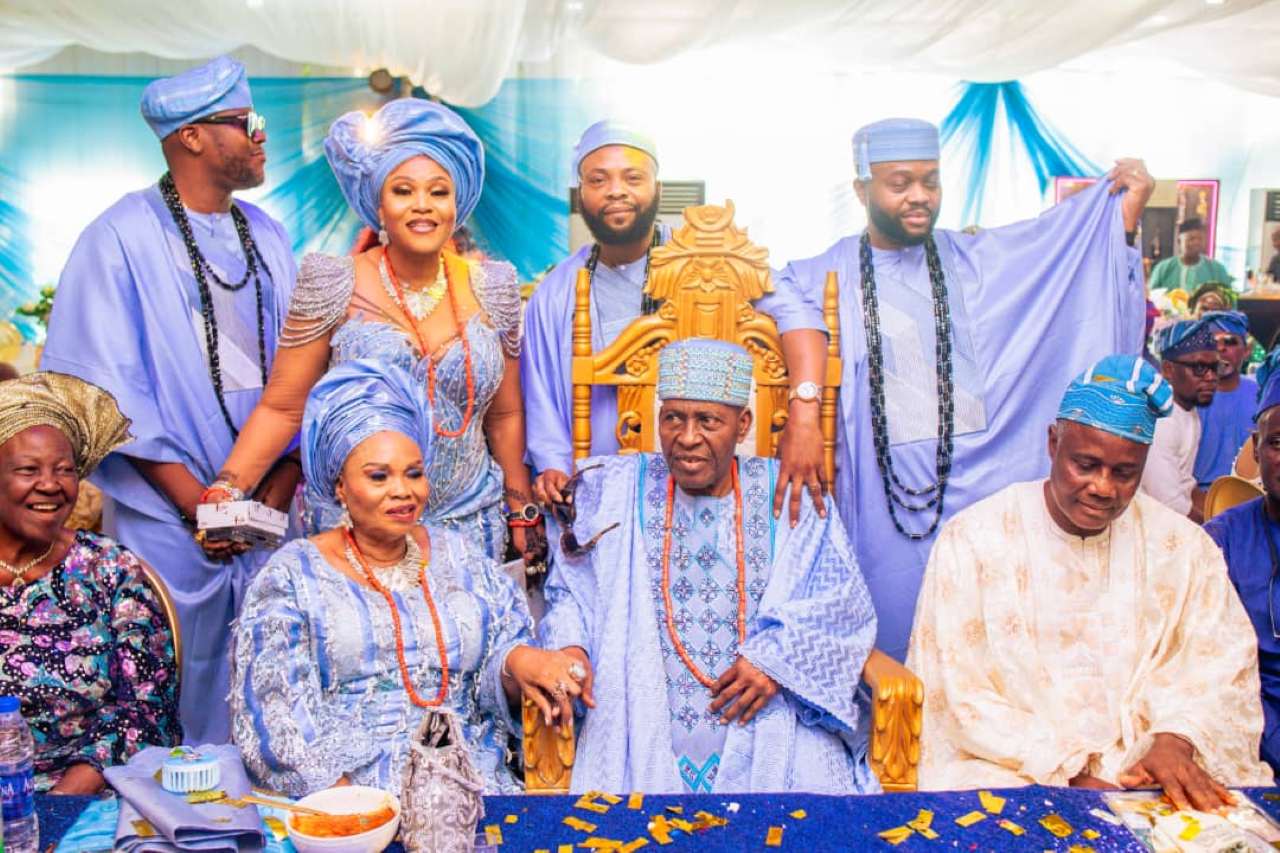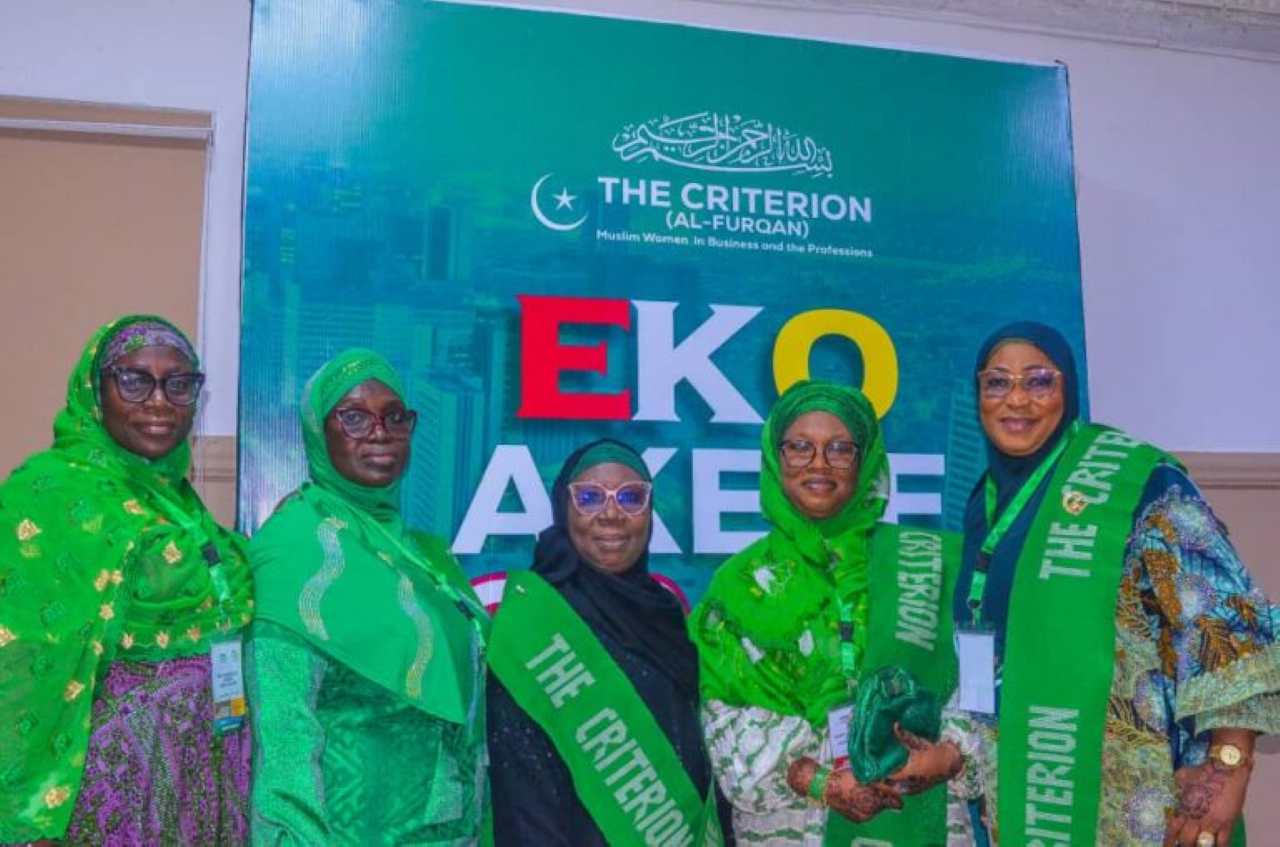Nigeria stands at a cultural crossroads of shifting social values, deepening materialism, and a widening generational disconnect. The rise of individualism is showing a sharp departure from the communal ethos that nurtured shared responsibility and collective upbringing in Nigeria and other African countries. Today, virtues like kindness, patience, and integrity are increasingly sidelined by an impatient, get-rich-quick mentality. Against this backdrop, the 80th birthday of Stella Oghuan Oyokonmino Kragha became more than a celebration to a reflection on the urgent need for citizen-driven nation-building and a return to values that once held Nigerians together, KINGSLEY JEREMIAH, writes.
GATHERED in Lagos on a warm evening of tributes, laughter, and reflection; friends, family, clergy, oil and gas executives, and public servants honoured a woman many described as “the society’s missing link.” Not because she ever courted publicity, but because she embodied a type of nation-building that is rarely celebrated, especially the slow, steady nurturing of character, community, and conscience.
A retired executive of the Nigerian National Petroleum Corporation (NNPC), Kragha is not a name that dominates headlines. Yet, the stories shared on her birthday showed the roles women like her quietly play, not only in career, but also in community as unseen architects of values, homes, and futures.
Born on June 4, 1945, orphaned at age 12, and raised across different parts of Nigeria, her life is marked by resilience, faith, and an unwavering dedication to family and service. Educated at Queen’s School, Ede, Kragha also attended Queen’s College, Yaba, Obafemi Awolowo University, Ile Ife, and the University of Manchester for her post-graduate in Library Science.
Kragha’s early academic achievements set the tone for a life that would cut across teaching, librarianship, and corporate management. From her early role as a teacher at Ibilo Girls’ Grammar School, Edo State, to setting up NNPC’s first specialised library, rising through the ranks as Manager of Archives and Administration, serving as General Manager of Human Resources before her appointment as Executive Director at the Warri Refinery and Petrochemical Company, her career journey showed the roles women played in leadership in Nigeria’s post-colonial era, especially in technical industries like the oil and gas sector. Yet, even as her professional responsibilities grew, those closest to her remember her mostly for her emotional intelligence, faith, integrity, mentorship, and people management.
Indeed, the tone of the evening was not defined by glamour but by gratitude. Attendees, which included former Group Managing Director of NNPC and founder of Rainoil, Dr. Gabriel Ogbechie; former presidential aspirant on the platform of Peoples Democratic Party (PDP), Dr. Sam Ohuabunwa, among others, spoke of how Stella and her husband, Moses, a respected petroleum expert and politician, opened their home to others, mentored young professionals through church programmes, and served tirelessly in faith-based and community organisations. She was the first Vice President of the Business Fellowship Ministry and Chairperson of the Udies Aware Organisation, a community-based non-governmental organisation focused on empowerment and awareness.
The celebration was meant to be a surprise and it succeeded. When the celebrant arrived at the venue, she was momentarily bewildered at how her children were able to reach so many people gathered to honour her, especially many faces from the past. She felt both overwhelmed and deeply loved. But as the evening unfolded, it became clear that the day was more than a birthday. It was a tribute to a woman whose life, though shaped by loss and hardship, has become a wellspring of inspiration for others.
Addressing guests in a tone that was at once humble and humorous, she reflected on how improbable it seemed to be marking her 80th birthday with such fanfare. She recalled joking with her children about how she hadn’t expected any grand plans, perhaps just a simple church service. But her children had other ideas, insisting she should merely be “ready” on the day.
Although physically small, something Kragha playfully noted when talking about her much taller husband and children, she has long served as the emotional and spiritual anchor of her family. Her influence, however, extends well beyond bloodlines.
One of the most striking revelations of the evening was the scope of her mentorship over the decades. Dozens of former youth group members from around the world had sent her voice notes and messages, some of them now respected professionals, parents, and leaders in their own rights. The transformation in these lives, she hinted, is a testament not to her own strength, but to God’s grace and guidance.
Rather than dwell on personal achievements or material success, Kragha encouraged the audience, particularly the younger generation, to live with gratitude, faith, and integrity. She emphasised that hardship should not be viewed merely as a misfortune but as a possible signpost on the road to greater purpose.
What stood out most in her speech was her insistence on gratitude. For her, every new day is a gift, especially in a world where many never wake or are confined by illness. She urged guests to start each day with thanks, to hand over their uncertainties to God, and to remain open to divine direction.
Despite Nigeria’s current challenges, her outlook remained hopeful. She acknowledged the nation’s struggles but expressed firm belief in a future turnaround, driven by faith and the potential of its people.
This dedication to her faith as a sustaining force wasn’t just religious; it was central to understanding her character. Her resilience, her capacity to uplift others, and her remarkable ability to sustain warmth and kindness in a competitive corporate environment stemmed from this spiritual grounding.
One of the most striking aspects of Kragha’s life, as revealed during the celebration, is her ability to bridge generations. Her influence cuts across age, class, and professional boundaries.
Her home radiated warmth and her generosity was not transactional but deeply human.
Her son, Anibor Kragha, who is currently the Executive Secretary of the African Refiners and Distributors Association (ARDA), believes that while Stella Kragha is not a name on a billboard, she is the kind of Nigerian who makes a country strong. Noting that she raised leaders by simply believing in them, Anibor recounted his personal struggles during his university years and how his mother’s unwavering belief became the force that propelled him to persevere.
“She never raised her voice, but her words had weight. When I stumbled, it was her quiet strength that carried me,” he said.
In many ways, Kragha’s story contrasts sharply with the prevailing ethos of contemporary Nigerian society. As political turbulence, economic hardship, and social fragmentation deepen, stories like hers become increasingly vital as reference points for reimagining the nation.
Renowned oil and gas expert and Chairman of Versa-Tech Nigeria Ltd, James Orife, a long-time family friend, described her as “a spiritual lighthouse in a society losing its moral compass.”
“Mrs. Kragha never prioritised material gain. She prioritised people. She listens, she loves, she lifts. We talk a lot about infrastructure and GDP. But we forget that a healthy society is built on character. That’s what she reminds us,” Orife said. Her in-law and Delta State’s Commissioner for Economic Planning, Sonny Akporokiyamo Ekedayen, recalled meeting Stella as an undergraduate nearly 45 years ago.
“When I first met her during my undergraduate years in Lagos, I encountered a woman who made you feel seen and valued. Whether through a warm meal, a kind word, or a gift of groundnuts and cake to take home, her presence was healing,” he said.
Ekedayen lamented what he described as the disintegration of intergenerational ties in Nigerian society.
“Today, things have changed. People increasingly prefer to live more independently, distancing themselves from their extended families. But what does this mean for us? For our values?
Sadly, many no longer see the importance of elders. There’s a growing sense of selfishness, and it’s creeping into how we raise our children. They’re beginning to lose touch with the values of family and community,” he added.
Ekedayen noted that being part of a community is a blessing as it gives people room to share love, joy, and support, adding that such upbringing shaped him and gave older generations the ability to care for those who have less.
A technology expert, Abdul-Hakeem Olasewere, who has known Kragha for about three decades, noted that while she never held political office or sought fame; her home became a school of values, her table a platform for dialogue, and her life a map for moral clarity.
Olasewere noted that in Nigeria, the concept of nation-building is often narrowly interpreted as political leadership or economic engineering but that Kragha’s life illustrates that there is another kind of nation-building that happens in homes, classrooms, libraries, churches, and offices, led by people whose names may never grace front pages but whose impact reverberates through generations. Her cousin, Aunty Abah Iruoje, shared a memory from when Stella was just three years old.
“My mother was pregnant with me, and Stella would bring her water to wash her hands even though she could barely carry the cup. She’s always been a nurturer,” she said, while narrating stories her mother had told her.
“You’ve always been such a generous and selfless person. You never hesitate. Nothing is too much or too great for you to give when someone is in need. My family has benefited immensely from your kindness. Even me, standing here today, I started benefiting from your generosity from the womb,” she added.
In today’s Nigerian society, where fame, wealth, and influence are often flaunted as the currency of success, Kragha’s story offers a counter-narrative. Her life stands as a testament to the power of quiet consistency, the value of ethical living, and the profound effect of genuine love and discipline, which have blossomed into a legacy for her children, grandchildren, mentees, and communities shaped not by wealth, but by presence.






